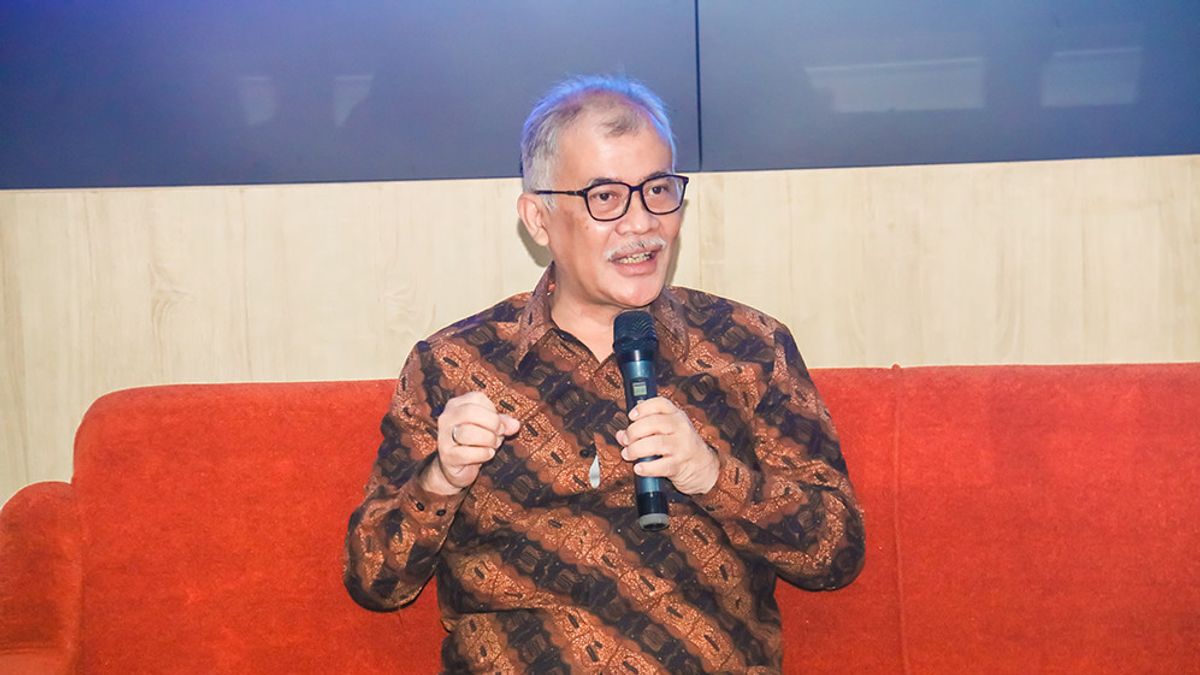JAKARTA - The Ministry of Industry (Kemenperin) continues to encourage the growth of the halal industry in the country.
In this regard, the Ministry of Industry has implemented competency certification for 36 halal auditors, 46 halal investigators, and facilitated halal industry certification with a target of 1,050 industries by the end of the year.
This is in line with the growing sector of the Islamic economy in Indonesia, which has shown encouraging developments over the last few years.
In addition, the sharia economy has also become a major agenda in several countries and is considered an important part of the economic recovery policy after the pandemic.
"To continue to grow the national halal industry, the Ministry of Industry invites relevant stakeholders to improve coordination and collaboration in order to create a halal industrial ecosystem," said Secretary General of the Ministry of Industry Dody Widodo in a written statement, Friday, November 4.
In this case, the Ministry of Industry also collaborated with the National Committee for Sharia Economics and Finance (KNEKS) to BUILD a Master Plan for the Development of the Indonesian Halal Industry (MPIHI) in order to achieve Indonesia's vision as the World Halal Producer Center.
"This collaboration supports the development and empowerment of the halal industry to realize Indonesia as a leading halal producer in the world," said Dody.
Furthermore, Doddy said, in order to strengthen regulations in the halal sector, the Ministry of Industry also included the empowerment of the halal industry as part of the National Industrial Policy (KIN).
Based on Presidential Regulation Number 74 of 2022 concerning National Industrial Policy for the 2020-2024 period, the empowerment of the halal industry is carried out through the preparation of halal industrial policies, strengthening the halal industry infrastructure, and implementing the Halal Product Guarantee System (SJPH).
"Then, the provision of fiscal and non-fiscal incentives for the halal industry, international cooperation in the context of access to halal raw materials, expansion of market access, and recognition of national halal certification through Multi Recognition Agreement (MRA) with other countries," explained Dody.
The Ministry of Industry is optimistic that it can realize industries with quality halal products through the Halal Product Guarantee System (SJPH) in the future.
This is based on the experience of the Ministry of Industry as the leading sector in implementing the Indonesian National Standard (SNI) industry.
Until now, the Ministry of Industry already has five accredited LPHs, including the Center for Standardization and Industrial Services (BBSPJI) Skin, Karet, and Plastic in Yogyakarta, BBSPJI Plantation Results, Metal Mineral, and Maritime Affairs in Makassar, Pekanbaru Standardization and Industrial Services Center (BSPJI), Banjarbaru BSPJI, and Ambon BSPJI.
"We continue to encourage other Integrated Service Units (UPT) at the Ministry of Industry to be able to increase the number of LPHs serving the community from Aceh to Ambon. Currently, there are nine UPTs that are in the process of accreditation," concluded Dody.
The English, Chinese, Japanese, Arabic, and French versions are automatically generated by the AI. So there may still be inaccuracies in translating, please always see Indonesian as our main language. (system supported by DigitalSiber.id)












